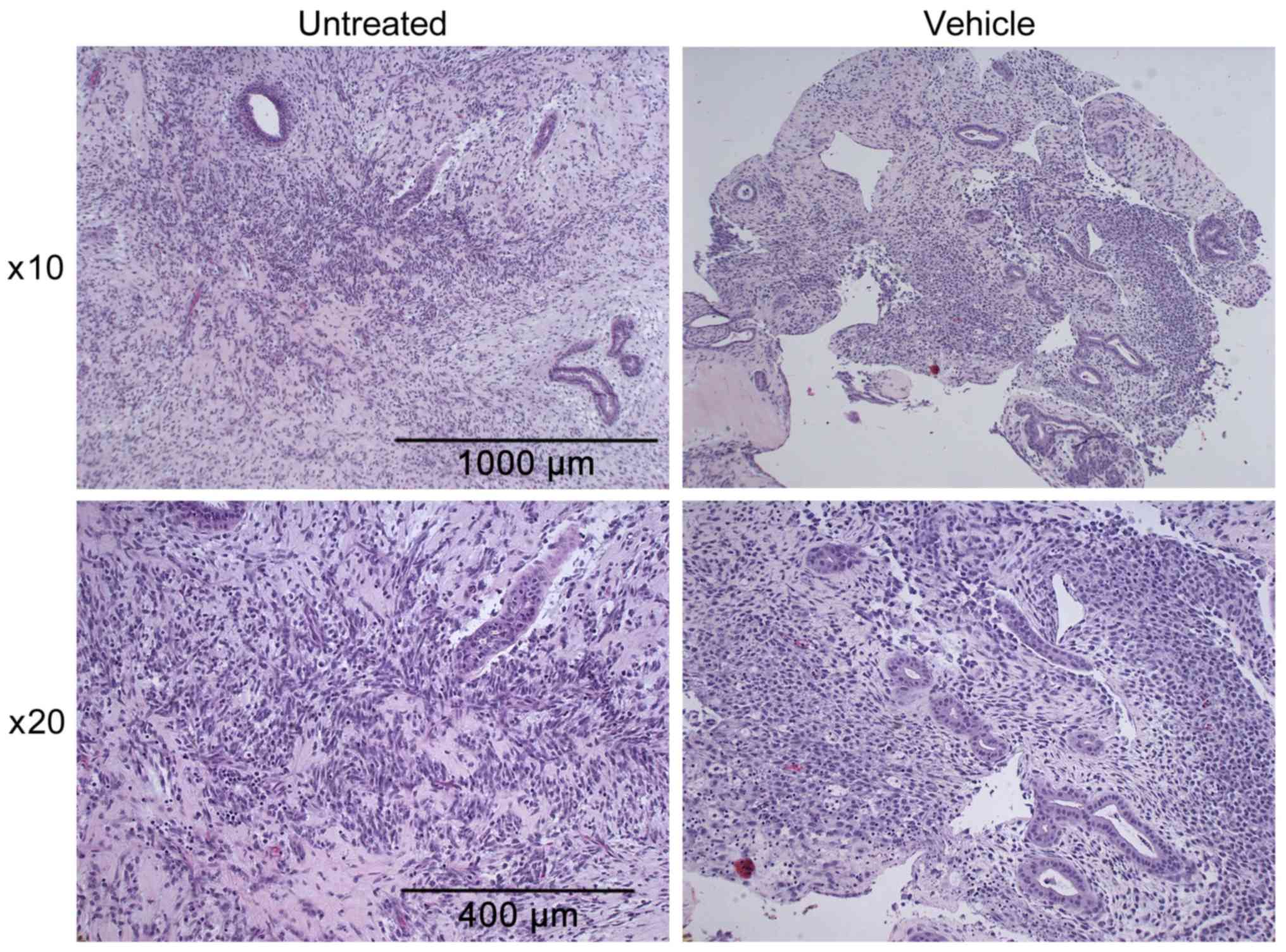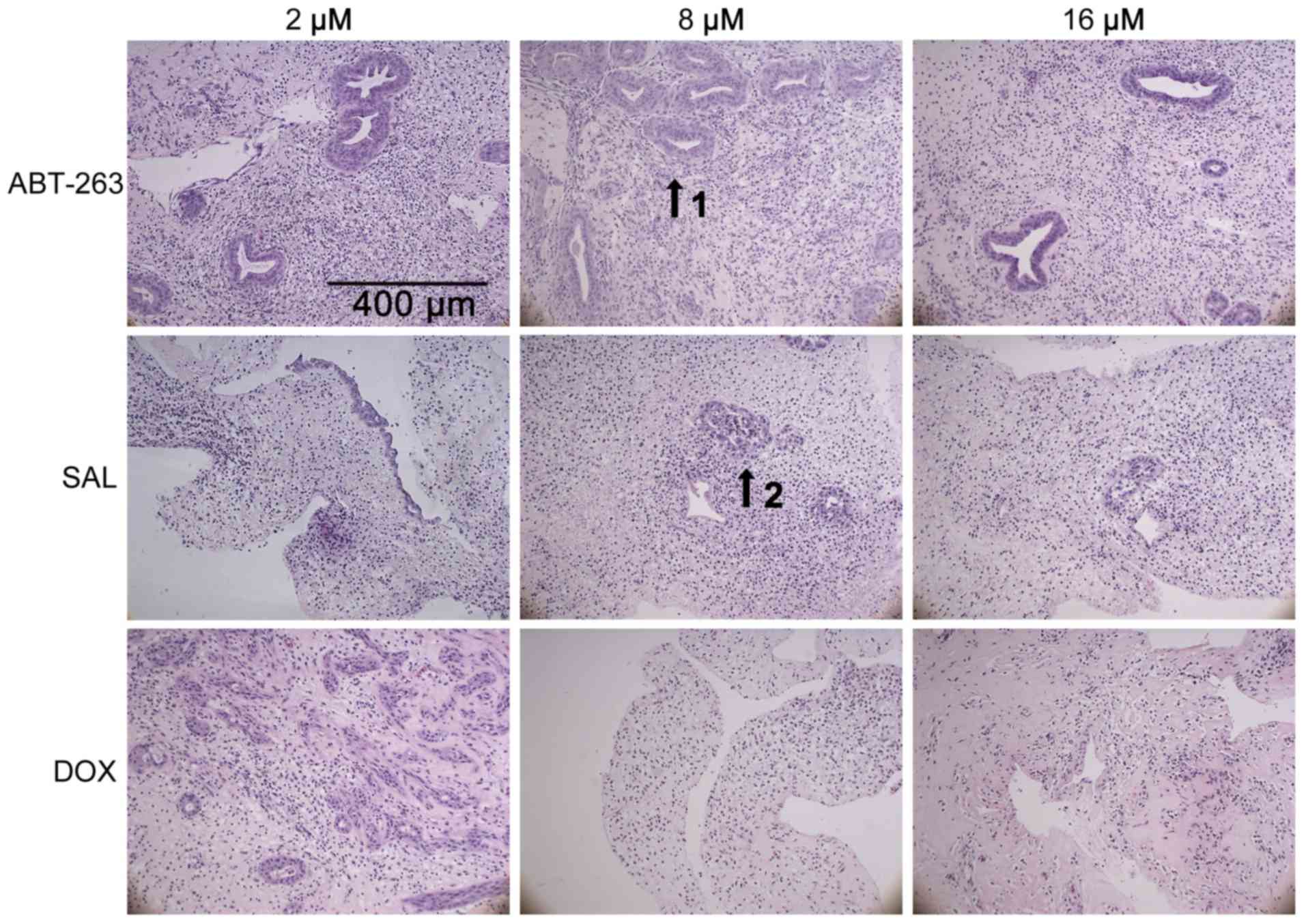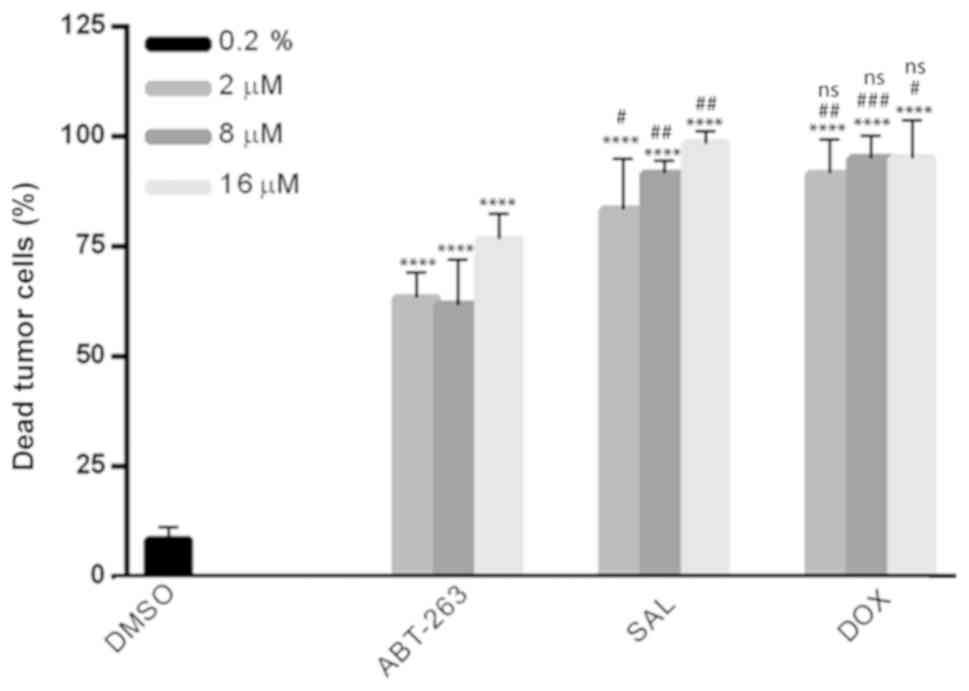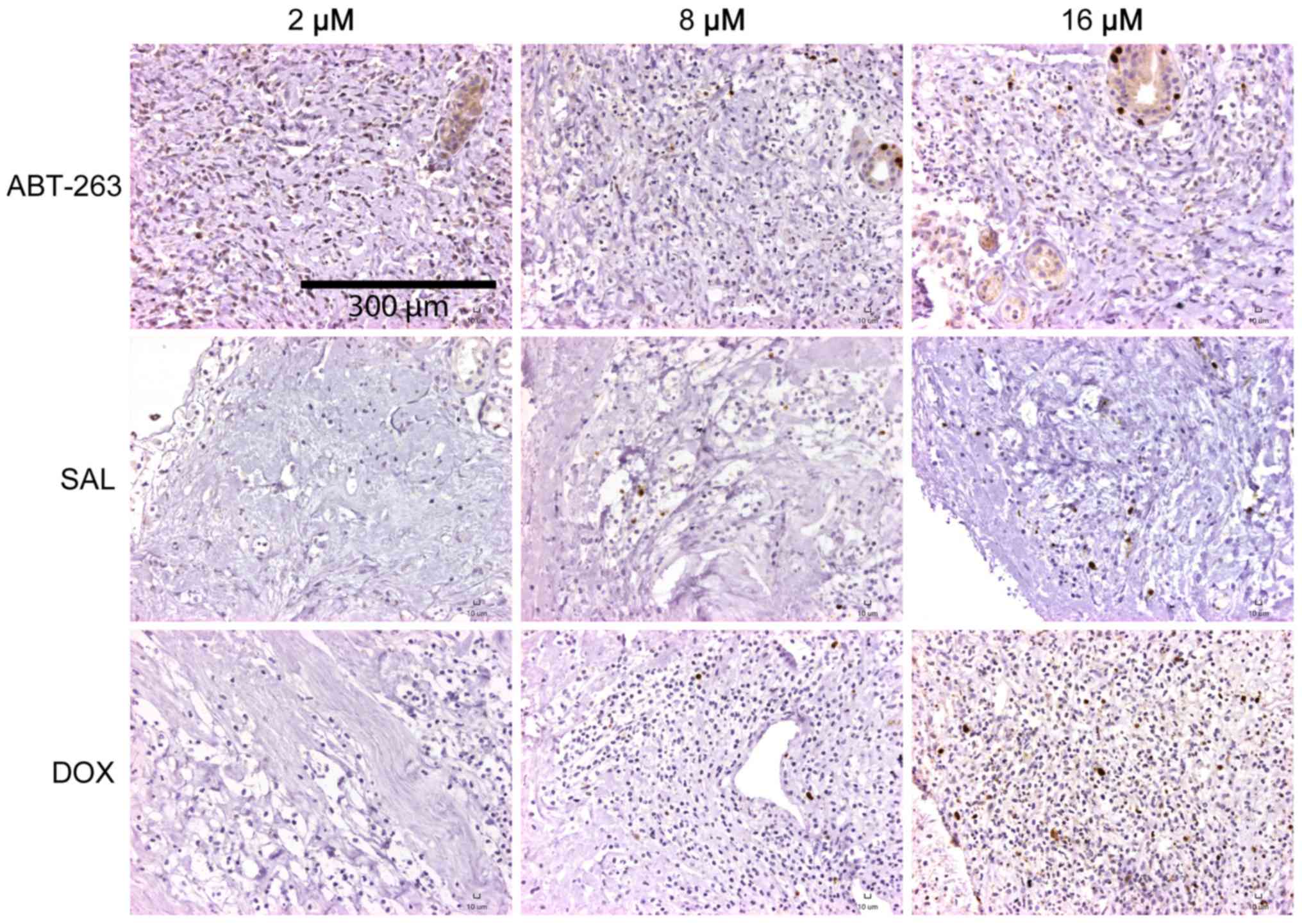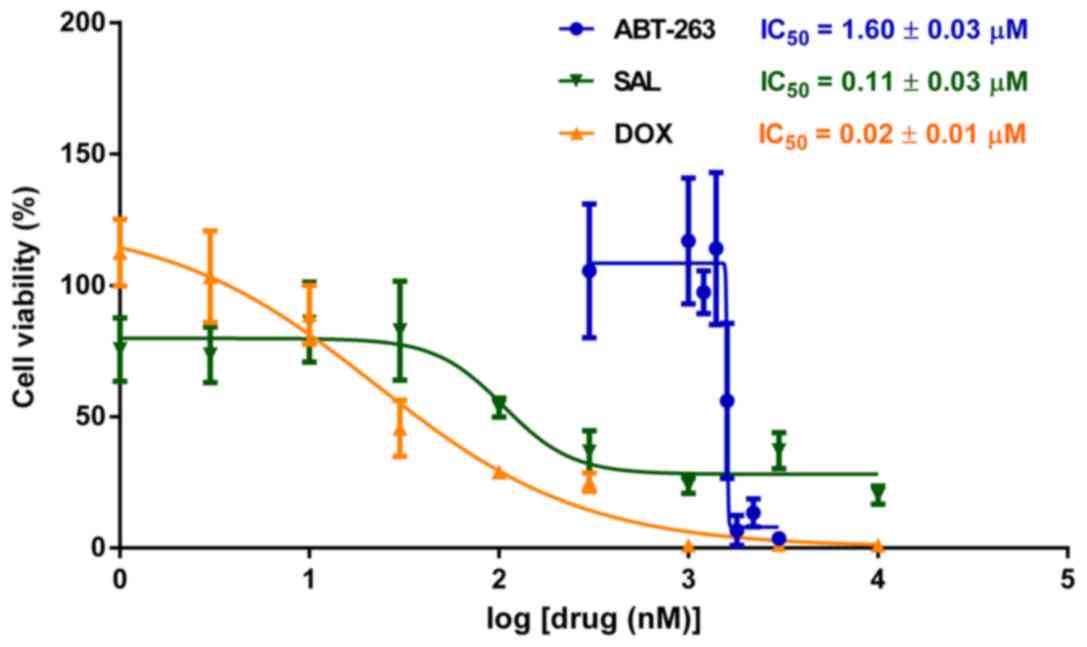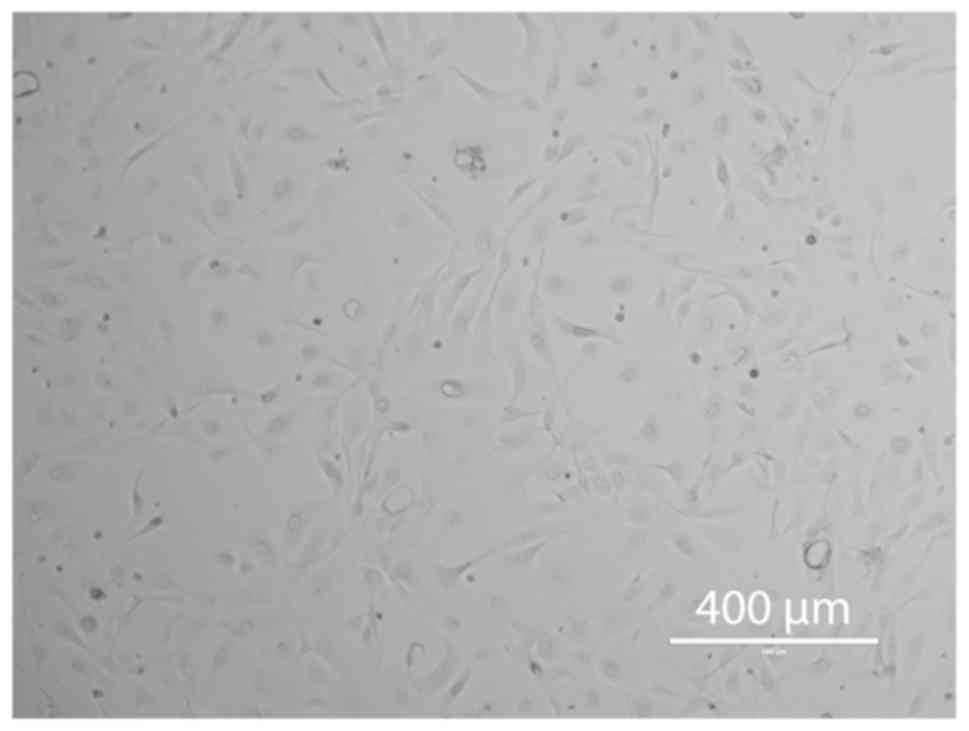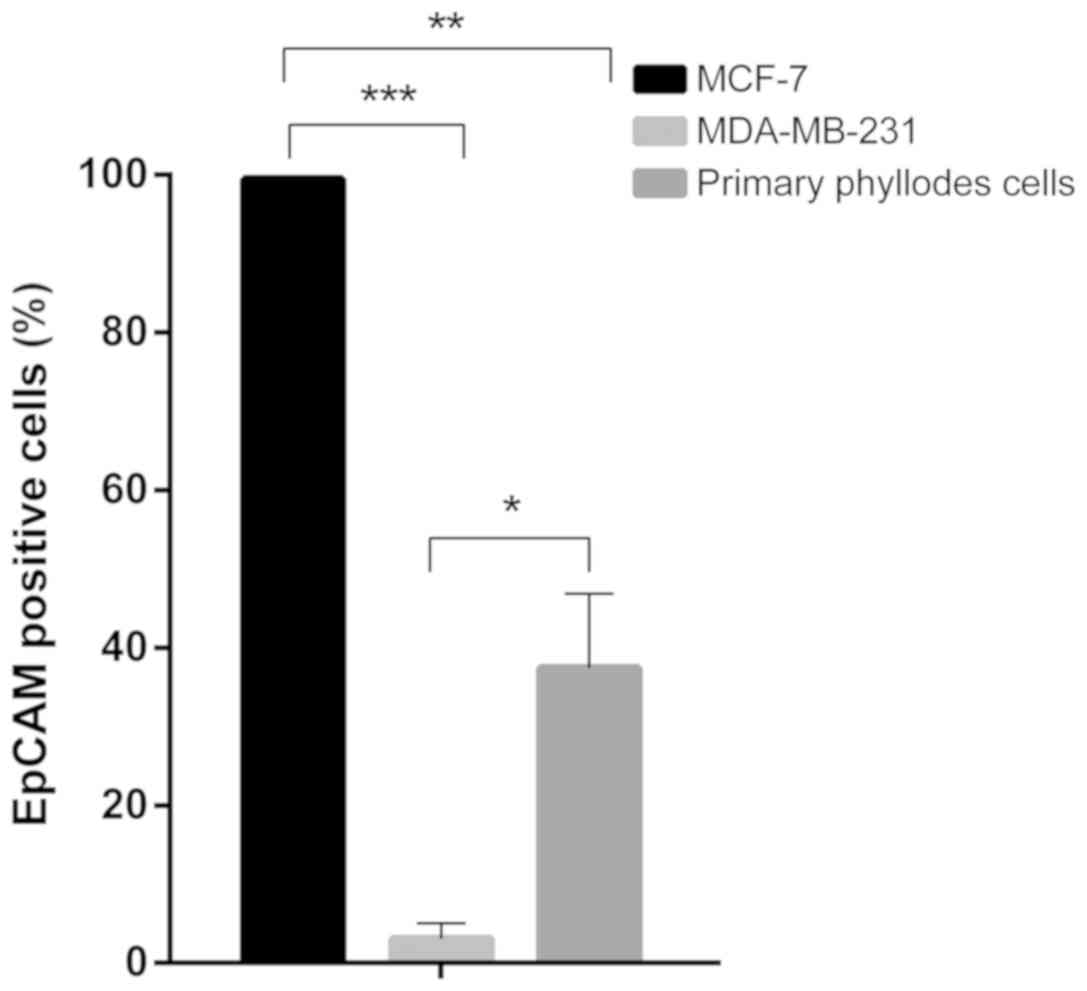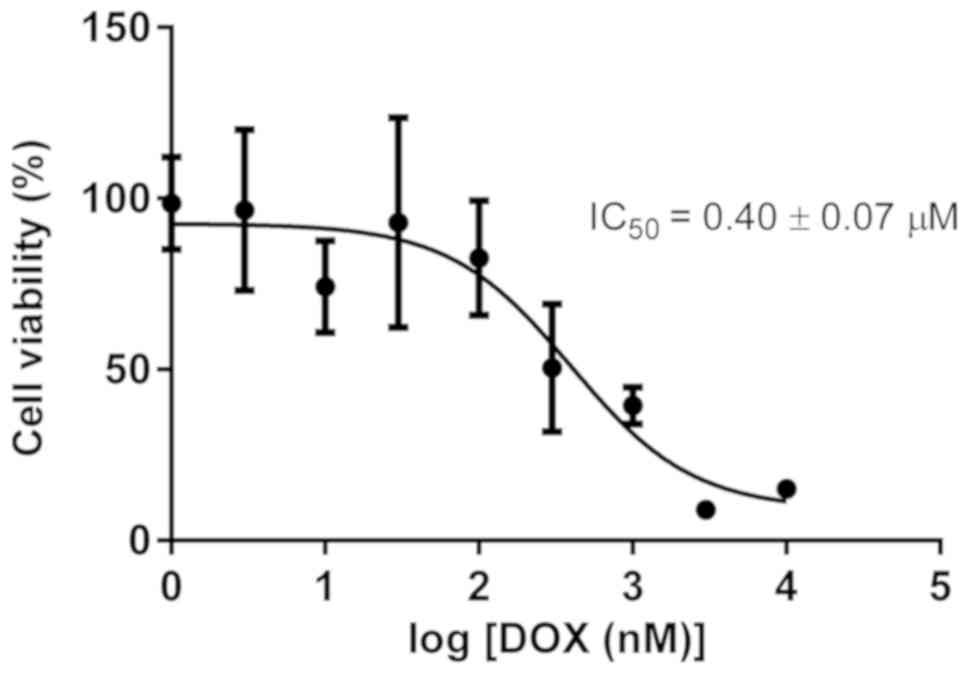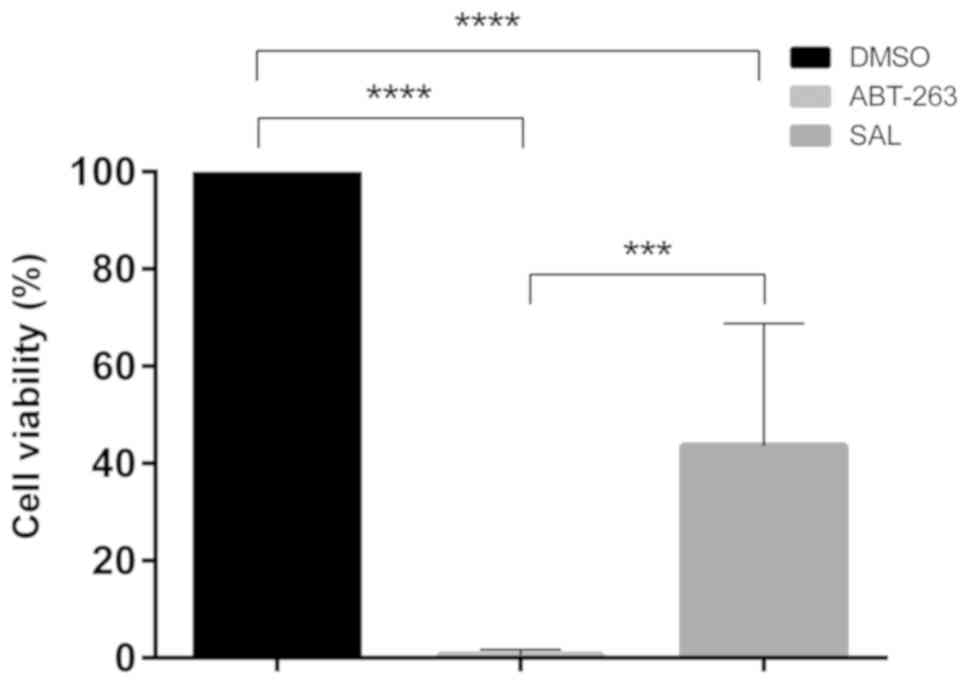|
1
|
Parker SJ and Harries SA: Phyllodes
tumors. Postgrad Med J. 77:428–435. 2001. View Article : Google Scholar : PubMed/NCBI
|
|
2
|
Strode M, Khoury T, Mangieri C and Takabe
K: Update on the diagnosis and management of malignant phyllodes
tumors of the breast. Breast. 33:91–96. 2017. View Article : Google Scholar : PubMed/NCBI
|
|
3
|
Roberts N and Runk DM: Aggressive
malignant phyllodes tumor. Int J Surg Case Rep. 8:161–165. 2015.
View Article : Google Scholar
|
|
4
|
Mishra SP, Tiwary SK, Mishra M and Khanna
AK: Phyllodes tumor of breast: A review article. ISRN Surg.
2013:3614692013. View Article : Google Scholar : PubMed/NCBI
|
|
5
|
Norat F, Dreant N, Riah Y and Lebreton E:
Ann ital chir extraordinary case of malignant phylloid tumor of the
breast: Surgical reconstruction treatment (Italian). 80:475–478.
2009.PubMed/NCBI
|
|
6
|
Chaney AW, Pollack A, McNeese MD, Zagars
GK, Pisters PWT, Pollock RE and Hunt KK: Primary treatment of
cystosarcoma phyllodes of the breast. Cancer. 89:1502–1511. 2000.
View Article : Google Scholar : PubMed/NCBI
|
|
7
|
Matar N, Soumani A, Noun M, Chraibi T,
Himmi A, el Mansouri A, Aderdour M and Bekkay M: Phyllodes tumors
of the breast. Forty one cases. J Gynecol Obstet Biol Reprod
(Paris). 26:32–36. 1997.PubMed/NCBI
|
|
8
|
Belkacémi Y, Bousquet G, Marsiglia H,
Ray-Coquard I, Magné N, Malard Y, Lacroix M, Gutierrez C, Senkus E,
Christie D, et al: Phyllodes tumor of the breast. Int J Radiat
Oncol Biol Phys. 70:492–500. 2008. View Article : Google Scholar : PubMed/NCBI
|
|
9
|
Guillot E, Couturaud B, Reyal F, Curnier
A, Ravinet J, Laé M, Bollet M, Pierga JY, Salmon R and Fitoussi A:
Breast cancer study group of the institut curie: Management of
phyllodes breast tumors. Breast J. 17:129–137. 2011. View Article : Google Scholar : PubMed/NCBI
|
|
10
|
Morales-Vasquez F, Gonzalez-Angulo AM,
Broglio K, Lopez-Basave HN, Gallardo D, Hortobagyi GN and De La
Garza JG: Adjuvant chemotherapy with doxorubicin and dacarbazine
has no effect in recurrence-free survival of malignant phyllodes
tumors of the breast. Breast J. 13:551–556. 2007. View Article : Google Scholar : PubMed/NCBI
|
|
11
|
Hashimoto K, Mimura H, Arai Y, Doi M,
Kojima Y, Tsugawa K and Nakajima Y: Successful preoperative
chemoembolization in the treatment of a giant malignant phyllodes
tumor. Cardiovasc Intervent Radiol. 39:1070–1075. 2016. View Article : Google Scholar : PubMed/NCBI
|
|
12
|
Shoemaker RH: The NCI60 human tumour cell
line anticancer drug screen. Nat Rev Cancer. 6:813–823. 2006.
View Article : Google Scholar : PubMed/NCBI
|
|
13
|
Burdall SE, Hanby AM, Lansdown MR and
Speirs V: Breast cancer cell lines: Friend or foe. Breast Cancer
Res. 5:89–95. 2003. View
Article : Google Scholar : PubMed/NCBI
|
|
14
|
Witkiewicz AK, Rivadeneira DB, Ertel A,
Kline J, Hyslop T, Schwartz GF, Fortina P and Knudsen ES:
Association of RB/p16-pathway perturbations with DCIS recurrence:
Dependence on tumor versus tissue microenvironment. Am J Pathol.
179:1171–1178. 2011. View Article : Google Scholar : PubMed/NCBI
|
|
15
|
Vargo-Gogola T and Rosen JM: Modelling
breast cancer: One size does not fit all. Nat Rev Cancer.
7:659–672. 2007. View
Article : Google Scholar : PubMed/NCBI
|
|
16
|
Dean JL, McClendon AK, Hickey TE, Butler
LM, Tilley WD, Witkiewicz AK and Knudsen ES: Therapeutic response
to CDK4/6 inhibition in breast cancer defined by ex vivo analyses
of human tumors. Cell Cycle. 11:2756–2761. 2012. View Article : Google Scholar : PubMed/NCBI
|
|
17
|
Majumder B, Baraneedharan U, Thiyagarajan
S, Radhakrishnan P, Narasimhan H, Dhandapani M, Brijwani N, Pinto
DD, Prasath A, Shanthappa BU, et al: Predicting clinical response
to anticancer drugs using an ex vivo platform that captures tumour
heterogeneity. Nature Commun. 6:61692015. View Article : Google Scholar
|
|
18
|
Nagourney RA: Ex vivo programmed cell
death and the prediction of response to chemotherapy. Curr Treat
Options Oncol. 7:103–110. 2006. View Article : Google Scholar : PubMed/NCBI
|
|
19
|
Kuilman T, Michaloglou C, Mooi WJ and
Peeper DS: The essence of senescence. Genes Dev. 24:2463–2479.
2010. View Article : Google Scholar : PubMed/NCBI
|
|
20
|
Roig AI, Eskiocak U, Hight SK, Kim SB,
Delgado O, Souza RF, Spechler SJ, Wright WE and Shay JW:
Immortalized epithelial cells derived from human colon biopsies
express stem cell markers and differentiate in vitro.
Gastroenterology. 138:1012–1021. 2010. View Article : Google Scholar : PubMed/NCBI
|
|
21
|
Liu X, Ory V, Chapman S, Yuan H, Albanese
C, Kallakury B, Timofeeva OA, Nealon C, Dakic A, Simic V, et al:
ROCK inhibitor and feeder cells induce the conditional
reprogramming of epithelial cells. Am J Pathol. 180:599–607. 2012.
View Article : Google Scholar : PubMed/NCBI
|
|
22
|
Saenz FR, Ory V, AlOtaiby M, Rosenfield S,
Furlong M, Cavalli LR, Johnson MD, Liu X, Schlegel R, Wellstein A
and Riegel AT: Conditionally reprogrammed normal and transformed
mouse mammary epithelial cells display a progenitor-cell-like
phenotype. PLoS One. 9:976662014. View Article : Google Scholar
|
|
23
|
Brown DD, Dabbs DJ, Lee AV, McGuire KP,
Ahrendt GM, Bhargava R, Davidson NE, Brufsky AM, Johnson RR,
Oesterreich S and McAuliffe PF: Developing in vitro models of human
ductal carcinoma in situ from primary tissue explants. Breast
Cancer Res Treat. 153:311–321. 2015. View Article : Google Scholar : PubMed/NCBI
|
|
24
|
Moo TA, Sanford R, Dang C and Morrow M:
Overview of breast cancer therapy. PET Clin. 13:339–354. 2018.
View Article : Google Scholar : PubMed/NCBI
|
|
25
|
Steinmetz MO and Prota AE:
Microtubule-targeting agents: Strategies to hijack the
cytoskeleton. Trends Cell Biol. 28:776–792. 2018. View Article : Google Scholar : PubMed/NCBI
|
|
26
|
Billard C: BH3 mimetics: Status of the
field and new developments. Mol Cancer Ther. 12:1691–700. 2013.
View Article : Google Scholar : PubMed/NCBI
|
|
27
|
Antoszczak M, Urbaniak A, Delgado M, Maj
E, Borgström B, Wietrzyk J, Huczyński A, Yuan Y, Chambers TC and
Strand D: Biological activity of doubly modified salinomycin
analogs - Evaluation in vitro and ex vivo. Eur J Med Chem.
156:510–523. 2018. View Article : Google Scholar : PubMed/NCBI
|
|
28
|
Antoszczak M, Popiel K, Stefańska J,
Wietrzyk J, Maj E, Janczak J, Michalska G, Brzezinski B and
Huczynski A: Synthesis, cytotoxicity and antibacterial activity of
new esters of polyether antibiotic-alinomycin. Eur J Med Chem.
76:435–444. 2014. View Article : Google Scholar : PubMed/NCBI
|
|
29
|
Van der Kuip H, Mürdter TE, Sonnenberg M,
McClellan M, Gutzeit S, Gerteis A, Simon W, Fritz P and Aulitzky
WE: Short term culture of breast cancer tissues to study the
activity of the anticancer drug taxol in an intact tumor
environment. BMC Cancer. 6:862006. View Article : Google Scholar : PubMed/NCBI
|
|
30
|
Dirks WG, MacLeod RA, Nakamura Y, Kohara
A, Reid Y, Milch H, Drexler HG and Mizusawa H: Cell line
cross-contamination initiative: An interactive reference database
of STR profiles covering common cancer cell lines. Int J Cancer.
126:303–304. 2010. View Article : Google Scholar : PubMed/NCBI
|
|
31
|
Alley MC, Scudiere DA, Monks A, Czerwinski
M, Shoemaker RH and Boyd MR: Validation of an automated
microculture tetrazolium assay (MTA) to assess growth and drug
sensitivity of human tumor cell lines. Proc Am Assoc Cancer Res.
27:389–391. 1986.
|
|
32
|
Alley MC, Scudiere DA, Monks A, Hursey ML,
Czerwinski MJ, Fine DL, Abbott BJ, Mayo JG, Shoemaker RH and Boyd
MR: Feasibility of drug screening with panels of human tumor cell
lines using a microculture tetrazolium assay. Cancer Res.
48:589–601. 1988.PubMed/NCBI
|
|
33
|
Yerushalmi R, Woods R, Ravdin PM, Hayes MM
and Gelmon KA: Ki67 in breast cancer: Prognostic and predictive
potential. Lancet Oncol. 11:174–183. 2010. View Article : Google Scholar : PubMed/NCBI
|
|
34
|
Lin CK, Tsai WC, Lin YC and Yu JC:
Biomarkers distinguishing mammary fibroepithelial neoplasms: A
tissue microarray study. Appl Immunohistochem Mol Morphol.
22:433–441. 2014. View Article : Google Scholar : PubMed/NCBI
|
|
35
|
Went P, Dirnhofer S, Schöpf D, Moch H and
Spizzo G: Expression and prognostic significance of EpCAM. J Cancer
Mol. 3:169–174. 2008.
|
|
36
|
Martowicz A, Spizzo G, Gastl G and
Untergasser G: Phenotype-dependent effects of EpCAM expression on
growth and invasion of human breast cancer cell lines. BMC Cancer.
12:5012012. View Article : Google Scholar : PubMed/NCBI
|
|
37
|
Lewko WM, Vaghmar R, Maleckar JR, Husseini
S, Montgomery CA, Thurman GB and Oldham RK: Cultured breast
cystosarcoma phylloides cells and applications to patient therapy.
Breast Cancer Res Treat. 17:131–138. 1990. View Article : Google Scholar : PubMed/NCBI
|
|
38
|
Tibbetts LM, Poisson MH, Tibbetts LL and
Cummings FJ: A human breast stromal sarcoma cell line with features
of malignant cystosarcoma phyllodes. Cancer. 62:2176–2182. 1988.
View Article : Google Scholar : PubMed/NCBI
|
|
39
|
Jordan MA and Wilson L: Microtubules as a
target for anticancer drugs. Nat Rev Cancer. 4:253–265. 2004.
View Article : Google Scholar : PubMed/NCBI
|
|
40
|
Wheate NJ, Walker S, Craig GE and Oun R:
The status of platinum anticancer drugs in the clinic and in
clinical trials. Dalton Trans. 39:8113–8127. 2010. View Article : Google Scholar : PubMed/NCBI
|
|
41
|
Tait SW and Green DR: Mitochondrial
regulation of cell death. Cold Spring Harb Perspect Bio. 5(pii):
a0087062013. View Article : Google Scholar
|
|
42
|
Mituś JW, Blecharz P, Walasek T, Reinfuss
M, Jakubowicz J and Kulpa J: Treatment of patients with distant
metastases from phyllodes tumor of the breast. World J Surg.
40:323–328. 2016. View Article : Google Scholar : PubMed/NCBI
|
|
43
|
Liu M, Yang S, Liu B, Guo L, Bao X, Liu B
and Dong L: Giant malignant phyllodes tumor of the breast: A rare
case report and literature review. Oncol Lett. 12:121–124. 2016.
View Article : Google Scholar : PubMed/NCBI
|
|
44
|
Allen R, Nixon D, York M and Coleman J:
Successful chemotherapy for cystosarcoma phyllodes in a young
woman. Arch Intern Med. 145:1127–1128. 1985. View Article : Google Scholar : PubMed/NCBI
|
|
45
|
Burton GV, Hart LL, Leight GS, Iglehart
JD, McCarty KS Jr and Cox EB: Cystosarcoma phyllodes effective
therapy with cisplatin and etoposide chemotherapy. Cancer.
63:2088–2092. 1989. View Article : Google Scholar : PubMed/NCBI
|
|
46
|
Lim SZ, Ng CCY, Rajasegaran V, Guan P,
Selvarajan S, Thike AA, Nasir NDBM, Koh VCY, Tan BKT, Ong KW, et
al: Genomic profile of breast sarcomas: A comparison with malignant
phyllodes tumours. Breast Cancer Res Treat. 174:365–373. 2019.
View Article : Google Scholar : PubMed/NCBI
|
|
47
|
Nozad S, Sheehan CE, Gay LM, Elvin JA,
Vergilio JA, Suh J, Ramkissoon S, Schrock AB, Hirshfield KM, Ali N,
et al: Comprehensive genomic profiling of malignant phyllodes
tumorsof the breast. Breast Cancer Res Treat. 162:597–602. 2017.
View Article : Google Scholar : PubMed/NCBI
|
|
48
|
Moore T and Lee AH: Expression of CD34 and
bcl-2 in phyllodes tumours, fibroadenomas and spindle cell lesions
of the breast. Histopathology. 38:62–67. 2001. View Article : Google Scholar : PubMed/NCBI
|
|
49
|
Jardim DL, Conley A and Subbiah V:
Comprehensive characterization of malignant phyllodes tumor by
whole genomic and proteomic analysis: Biological implications for
targeted therapy opportunities. Orphanet J Rare Dis. 8:1122013.
View Article : Google Scholar : PubMed/NCBI
|















